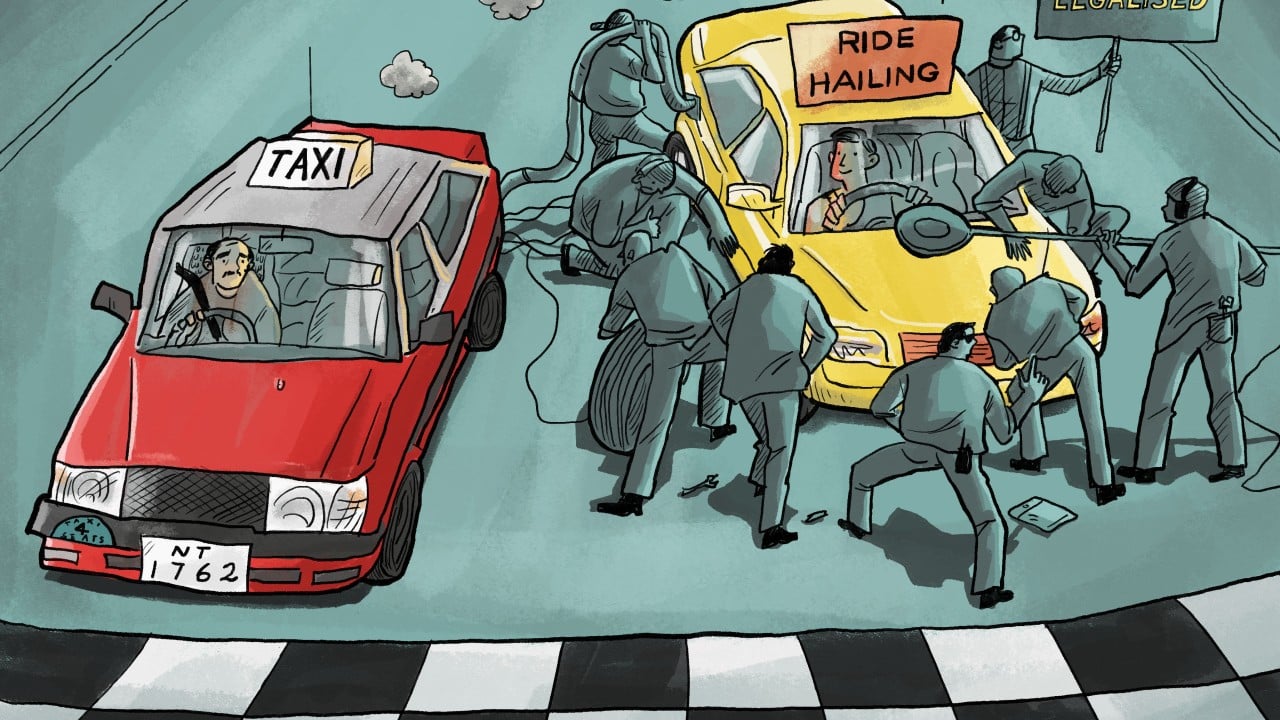Published: 8:30am, 14 Feb 2025Updated: 8:55am, 14 Feb 2025
Hong Kong’s ride-hailing firms are seeing a light at the end of the tunnel after more than a decade of operating mostly illegally and locking horns with the taxi industry.
Advertisement
Secretary for Transport and Logistics Mable Chan is intent on legalising ride-hailing and opening the sector to all players.
A framework for regulating the platforms is expected to go before lawmakers this year and, going by the experience of other jurisdictions, Hong Kong is unlikely to limit the number of ride-hailing operators.
Experts told the Post that the new regulations, aside from covering the safety and security of users, should ensure a level playing field for taxis and ride-hailing platforms, and safeguard cabbies’ livelihoods too.
But the taxi sector’s opposition to the platforms was on display again this week, as an influential union for cabbies threatened to lead a five-day strike next month if authorities failed to respond positively to its demands for a clampdown on the apps.
Advertisement
US-based Uber arrived in the city in 2014 and quickly became hugely popular with commuters who were fed up with the poor taxi service, including rude cabbies and uncomfortable rides with ageing drivers.
Three other ride-hailing platforms have joined the scene since then – Singapore-based Tada, Chinese navigation app Amap and Beijing-based Didi Chuxing. Amap is operated by Alibaba Group Holding, which owns the South China Morning Post.

